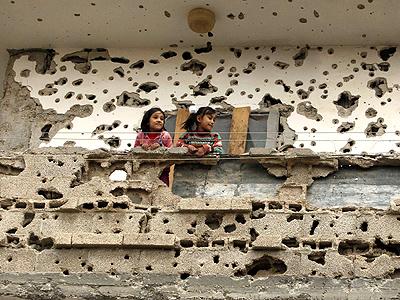
By Ramzy Baroud
When Israeli commandos violently raided the Freedom Flotilla in May 2010, something extraordinary happened in Gaza: a deep sense of loss, but also pride. It was the first time that this generation experienced real solidarity emanating from a Muslim country, exhibited with such resolution and willingness to sacrifice.
Many Palestinians had finally renewed their faith, not just in humanity, but also in their ummah, their larger Muslim nation. True, the siege that has suffocated Gaza all of these years was not broken; but what broke, and immediately so, was the sense of isolation that Palestinians have felt for too many years.
Gaza has been under a perpetual siege since 1967. Over the last nine years, the siege worsened. It morphed into a blockade when Israel decided to treat Gaza as a “hostile territory”, as if the impoverished and completely sealed tiny coastal strip was a sovereign nation. And for all of those years, Gaza became a ground for massive, extremely violent experimentations: successive, deadly wars operated with the latest weapons technology, along with a carefully counted calorie intake to merely keep the population alive, yet continually malnourished.
Whenever Gaza purportedly weakened, Israel carried out another war, hoping that more firepower would break the spirit of the tenacious territory. Major wars in 2008-09, 2012 and 2014 killed thousands of people.
When Israel attacked the Freedom Flotilla in international waters, Palestinians in Gaza marched in large numbers, raised posters adorned by the faces of their Turkish “martyrs”, and hailed Erdogan as the hero they desperately needed, since their own leadership often betrayed them.
Curiously, Turkey was the first Muslim-majority country to recognize Israel in 1949, when more than a million Palestinian refugees lived in squalid refugee camps, while Israel was erecting a brand new country upon the ruins of the refugees’ homes.
Since then, Turkey has played quite a duplicitous role. While gradually normalizing relations with Israel, it occasionally protested one Israeli policy or another. Yet peculiarly, every time, the relationship between Israel and Turkey would resume without ever addressing Turkey’s grievances, and the re-normalization fanfare would take place along with massive investments and military contracts. That same scenario was repeated after the Nakba, the 1956 Suez Canal crisis, the 1967 war and the occupation of what remained of historic Palestine, and Israel’s declaration of Jerusalem (al-Quds) as its “eternal capital” in 1980.
Even when NATO powers, led by the United States, worked diligently to mend the rift resulting from the Israeli attack on the Mavi Marmara, trade between both countries never ceased.
“Though political relations had hit rock bottom, both Turkey and Israel knew business must go on,” Turkey’s TRT World reported. “Business and politics were separated by a Chinese-wall like efficiency. Trade not only continued but expanded by 26 percent compared to 2010.”
2013 and 2014 were among the busiest years for Turkish Airlines carrying passengers between Turkey and Israel, and in 2015, trade between both countries had risen to $5.6bn, according to the Turkish Statistics Institute, cited in TRT.
Diplomatic re-normalization between Istanbul and Tel Aviv has been afoot for years, although Palestinians were promised that no such rapprochement was possible without lifting the siege on Gaza – one of Turkey’s three oft-repeated conditions. The others were an Israeli apology for killing the Turkish nationals and a financial compensation package for their families.
But a whole different story emerged on June 27, when a normalization deal was signed – one that is not inspired by ending the siege on Gaza, but rather “spurred by energy prospects”. There was no lifting of the siege, but rather lifting of restrictions that would allow Israel to ship natural gas via Turkey to the rest of Europe, generating billions of dollars in the process.
The Israeli Security Cabinet hurriedly approved the reconciliation agreement on June 29, and Israeli Prime Minister Benjamin Netanyahu celebrated what he called an agreement with “immense implications for the Israeli economy”.
Turkish Prime Minister Binali Yildirim said “the Israeli embargo on Gaza has been ‘largely lifted'” as reported by Al Jazeera.
It hasn’t. Moreover, embargoes are concerned with food and fuel. It is freedom from a suffocating blockade that Palestinians sought, not Turkish handouts to be delivered via an Israeli seaport.
The Turkish-Israeli deal was a blow to Palestinian hopes that their siege was about to end, that they were no longer alone facing Israel’s military machine and its powerful Western benefactors.
Perhaps the deal is also a wake-up call – that Palestinians must count on themselves first and foremost, achieve their elusive unity and seek solidarity the world over, not just with Ankara.
(This article was first published in Al Jazeera)
– Ramzy Baroud has been writing about the Middle East for more than 20 years. He is an internationally syndicated columnist, media consultant, author of several books and founder of PalestineChronicle.com. His website is www.ramzybaroud.net.





